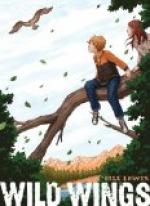MOSTLY TONY
Among the voluble, excited, commencement-bound crowd that boarded the Northampton train at Springfield two male passengers were conspicuous for their silence as they sat absorbed in their respective newspapers which each had hurriedly purchased in transit from train to train.
A striking enough contrast otherwise, however, the two presented. The man next the aisle was well past sixty, rotund of abdomen, rubicund of countenance, beetle-browed. He was elaborately well-groomed, almost foppish in attire, and wore the obvious stamp of worldly success, the air of one accustomed to giving orders and seeing them obeyed before his eyes.
His companion and chance seat-mate was young, probably a scant five and twenty, tall, lean, close-knit of frame with finely chiseled, almost ascetic features, though the vigorous chin and generous sized mouth forbade any hint of weakness or effeminacy. His deep-set, clear gray-blue eyes were the eyes of youth; but they would have set a keen observer to wondering what they had seen to leave that shadow of unyouthful gravity upon them.
It happened that both men—the elderly and the young—had their papers folded at identically the same page, and both were studying intently the face of the lovely, dark-eyed young girl who smiled out of the duplicate printed sheets impartially at both.
The legend beneath the cut explained that the dark-eyed young beauty was Miss Antoinette Holiday, who would play Rosalind that night in the Smith College annual senior dramatics. The interested reader was further enlightened to the fact that Miss Holiday was the daughter of the late Colonel Holiday and Laura LaRue, a well known actress of a generation ago, and that the daughter inherited the gifts as well as the beauty of her famous mother, and was said to be planning to follow the stage herself, having made her debut as the charming heroine of “As You Like It.”
The man next the aisle frowned a little as he came to this last sentence and went back to the perusal of the girl’s face. So this was Laura’s daughter. Well, they had not lied in one respect at least. She was a winner for looks. That was plain to be seen even from the crude newspaper reproduction. The girl was pretty. But what else did she have beside prettiness? That was the question. Did she have any of the rest of it—Laura’s wit, her inimitable charm, her fire, her genius? Pshaw! No, of course she hadn’t. Nature did not make two Laura LaRue’s in one century. It was too much to expect.
Lord, what a woman! And what a future she had had and thrown away for love! Love! That wasn’t it. She could have had love and still kept on with her career. It was marriage that had been the catastrophe—the fatal blunder. Marriage and domesticity for a woman like that! It was asinine—worse—criminal! It ought to have been forbidden by law. And the




